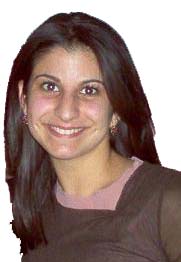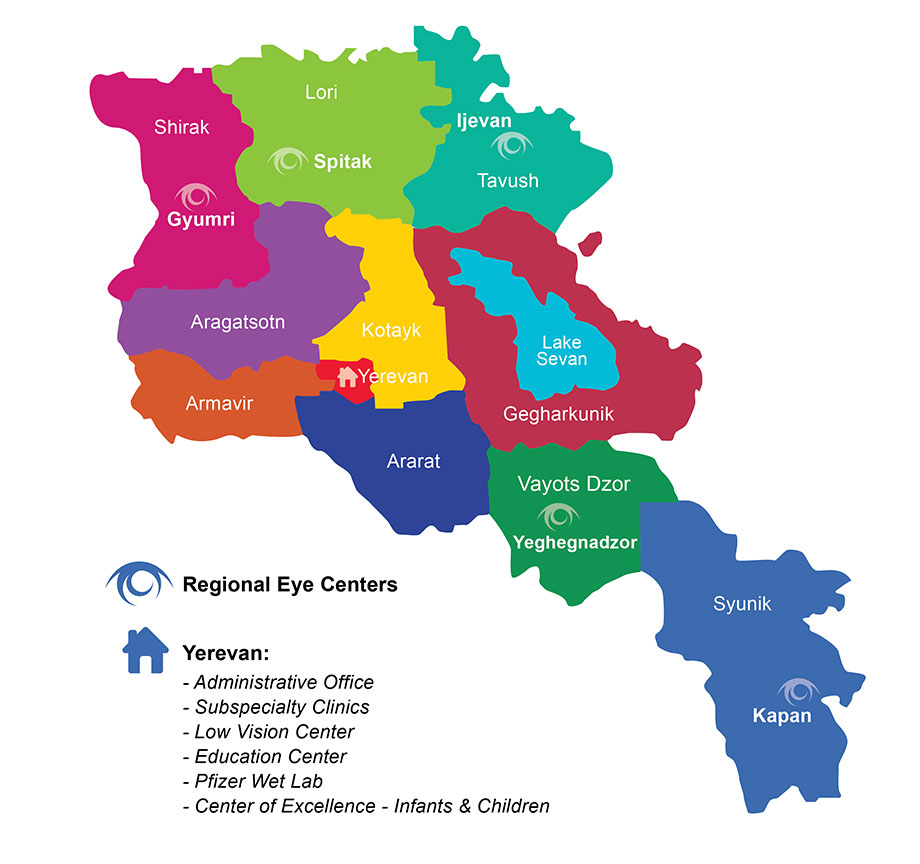Summer Intern Learns Change Requires Action

My name is Lisa Giragosian, and I was an Armenian EyeCare Project intern at the Yerevan office a few summers ago.
As a junior at Wellesley College, I was pursuing a major in Neuroscience and a minor in Economics and attended graduate school for research in Neuroscience and in Public Health. Thanks to AECP, I was exposed to many possibilities in the public health field.
I have a limited medical background; I am not pre-med. I have interned at Brown University’s Neuroscience Department, primarily shadowing a grad student in a lab. Also at Brown, I was a research assistant to a psychology professor. By studying Neuroscience, I naturally fulfill many of the pre-med requirements.
In Yerevan, I usually worked on weekdays from 10:00 a.m. until about 4:00 p.m. My workday was shortened since I usually had daily afternoon meetings with different programs. On some Fridays, I came into AECP in the morning, and volunteered at Orran Youth Center in the afternoon.
My daily schedule was tight and left me with little flexibility to travel outside the city. Fortunately, I traveled to Nagorno-Karabakh with Nune Yeghiazaryan, AEP’s In-Country Director. On our return, we stopped in Goris to visit the Mobile Eye Hospital. My first visit to the beautiful village was enhanced by my experience at the MEH. Despite the time and space constraints, the doctors and nurses met — and perhaps exceeded — all medical standards. Most of the patients were elderly, and were given the utmost respect and undivided attention of the medical experts. I was also impressed by the MEH atmosphere. On-the-spot diagnoses and surgeries, combined with anxious, at-risk patients, seems like a formula for stress and chaos. But the doctors and patients ended each session with success.
As one of AECP’s first interns, my role basically morphed as the summer progressed. Initially, I did light research for a fact-sheet about stem-cell research, arguably today’s most popular scientific and political controversy. When taking a break from reading about stem-cell research, I read the AECP’s most recent survey and looked at its statistical analysis method. Both projects were engaging and encouraged me to apply my skills of data interpretation while challenging my developing opinions on significant global issues.
Although I utilized my skills, my AECP co-workers expected me to be challenged even more. I worked collaboratively on the eye safety campaign with Gohar Khojayan. By my sixth week at the office, I was asking questions without hesitation. I became more comfortable with the projects, and confident in my growing participation and input.
Working with AECP in Yerevan exposed me to the field of public health. Since my return to the U.S., the office has sent me updates on the project. Seeing the growing success of that one project is inspiring; I cannot imagine its growth in just one year. The office welcomed me as part of their close-knit team. I miss our times — both stressful and fun! — but am thankful for the bond we established.
The most valuable experience of my AECP internship was the general seeing, learning, and doing of the project’s objectives. The statistics compiled in the surveys came to life in Goris, where I sat in on meetings with the Ministers of Health, and edited grant proposals. I learned that change requires action, and action calls for dedication. AECP’s Yerevan office exemplified this logic with passion and grace. At AECP, I did what was asked of me, and now, I am asking what I can do for AECP.







